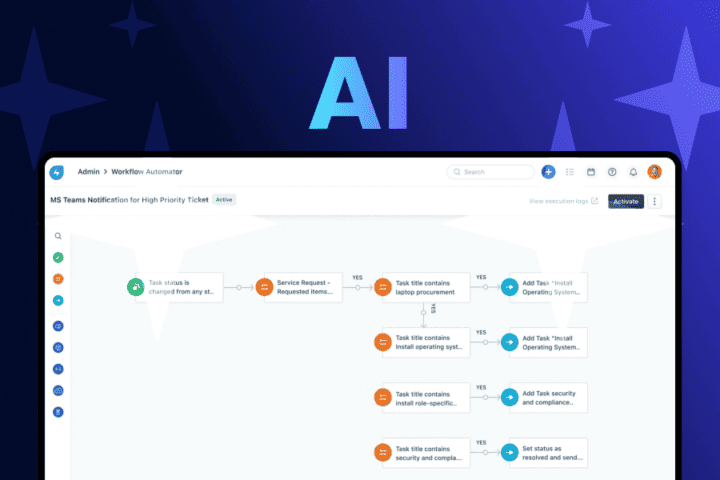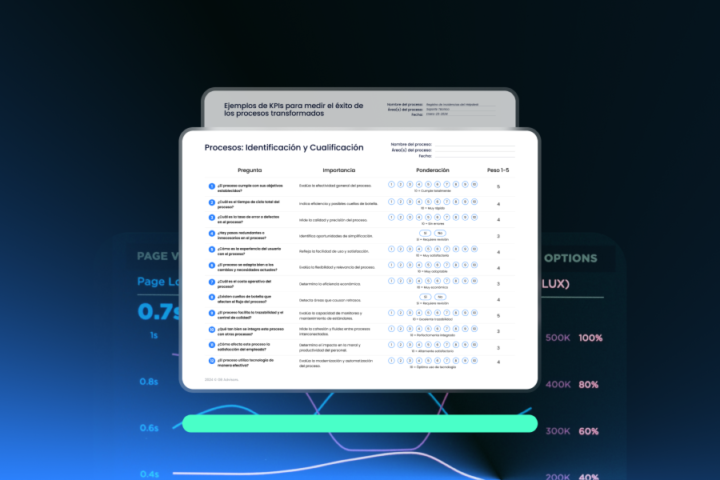Will Digital Enterprises displace Traditional Enterprises?
Digital age has changed our concept about enterprises. Until recently, we associated enterprise with office, the physical environment where we clocked in and out and worked. Nowadays, many people work from any place with Internet connection, and this reality has influenced the way we do business.
Enterprises have moved toward virtual environments, and that’s what we call Digital Enterprises. This new concept has brought deep changes and transitions that we necessarily need to incorporate, if we want to leverage our businesses. In this sense, Change Management is key point to get what we want.
But, what is exactly a Digital Enterprise? Will traditional enterprises disappear, overshadowed by digital enterprises? And the most important question, what options we have to cope with Change Management?
According to Margaret Rouse for SearchCIO we have:
“A digital enterprise is an organization that uses technology as a competitive advantage in its internal and external operations. As information technology (IT) has reshaped the infrastructure and operations of enterprises, digital enterprise has taken on different meanings. Following the introduction of the Web, for example, the term was sometimes used to refer to business activities or new business models that incorporated digital technology, such as the purchase of goods from online sites such as Amazon.com. As more business processes, products and business models are transformed by digitized information, the term will continue to evolve.”
Then, we may say that digital enterprises are those that move with technology: They use it as tool, as mean, and as referral framework to create business strategies. Technology also has particular impact over business culture.
Also, there are many enterprises that came out from technology, devote their energies to it and have no different environment than cyberspace. Yet, everybody perceive their impacts.
Anyway, tags aren’t important. Change is.
 Whether the company you work for is digital, traditional or something in between; or if you are in the transition to integrate new technologies, platforms or solutions, it applies what Heraclitus argued: “The only constant is change”. And it’s always better to count on tools to cope with Change Management.
Whether the company you work for is digital, traditional or something in between; or if you are in the transition to integrate new technologies, platforms or solutions, it applies what Heraclitus argued: “The only constant is change”. And it’s always better to count on tools to cope with Change Management.
In view of such reality, there are plenty solutions for Change Management thought to absorb evolution and transitions. And much of them offer a strategic base for:
- Improve efficiency and effectiveness. Thereby, they reduce time-to-market and operative costs.
- Standardize and normalize processes in all OSI layers, departments and instances.
- Establishing rules and tools for governance and management of information.
- Adapt integration in accordance with the enterprise’s growth.
- Assimilate and incorporate suitable technologies for every department, and favor interactions across the enterprise.
- Adjust legacy systems to new IT systems to mitigate the impacts of transitions.
- Facilitate training for personnel to assimilate change.
On the one hand, traditional enterprises are still valuable and convenient, and it seems like they won’t disappear in the near future. On the other hand, digital enterprises offer undeniable advantages over traditional enterprises. Yet, it’s building bridges between both what ensures leverage and success in the long term.
Traditional enterprises that have made their way through digital means have advantages to assimilate change management. However, not every change management solution fits for every enterprise, and vice versa.
We invite you to discover the best options that will help you to easily integrate Change Management. Whether you’re opening your online business, a new branch, or integrating new automatized systems, we are willing to advise you so that you can choose the system that is best tailored to your business.
SERVICENOW FRESHSERVICE TRACK-IT!




